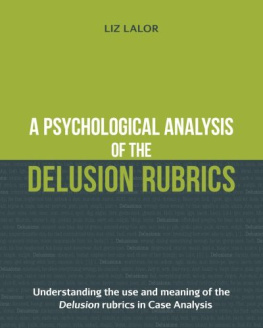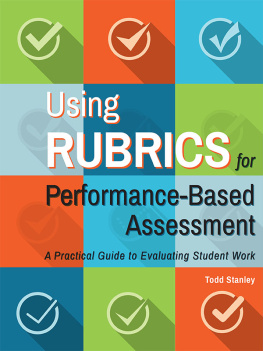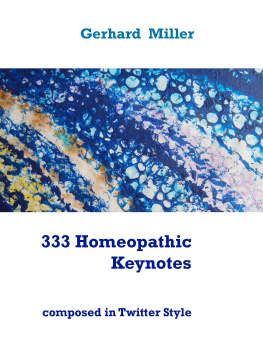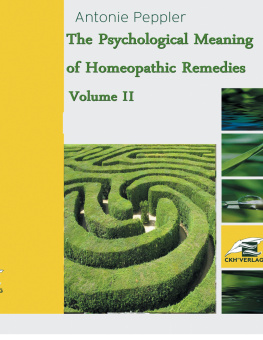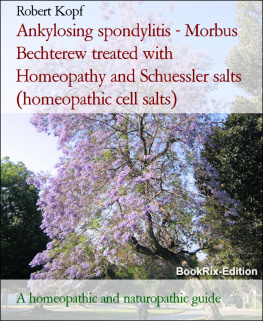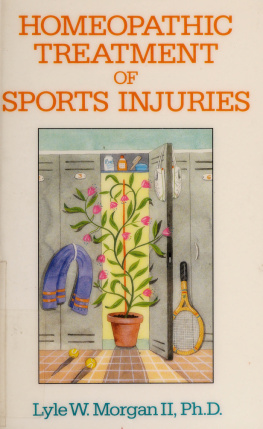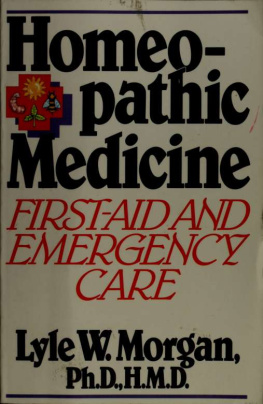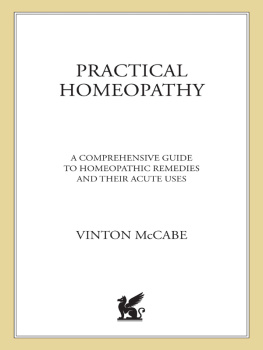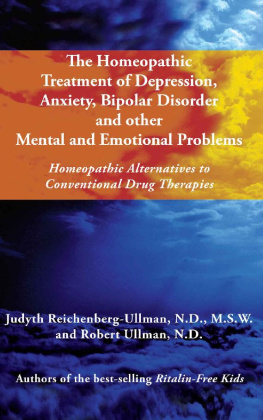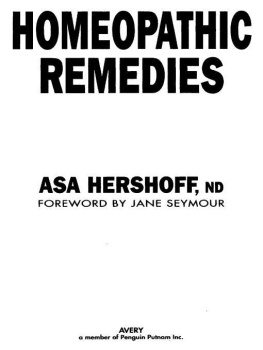A Psychological Analysis of the Delusion Rubrics Understanding the use and meaning of the Delusion rubrics in Case Analysis Liz Lalor Published in Australia in 2016 by Elk Press Postal: PO Box 3043, Ripponlea, VIC 3185, Australia Phone: +61 490 030 538 Email: lalor@ozonline.com.au Website: www.lizlalor.com First published in Australia in 2016 Copyright Liz Lalor 2016 All rights reserved. No part of this publication may be reproduced, stored in a retrieval system, or transmitted, in any form or by any means without the prior written permission of the publisher, nor be otherwise circulated in any form of binding or cover other than that in which it is published and without a similar condition being imposed on the subsequent purchaser. National Library of Australia Cataloguing-in-Publication entry Creator: Lalor, Liz, 1956- author. Title: A psychological analysis of the delusion rubrics: understanding the use and meaning of the delusion rubrics in case analysis / Liz Lalor. ISBN: 9780994505705 (paperback) Notes: Includes Index. Subjects: Homeopathy--Psychological aspects.
Homeopathy--Materia medica and therapeutics. Psychological manifestations of general diseases. Delusions--Case studies. Dewey Number: 615.532 Printed by Griffin Press Cover layout, design and typesetting by Nelly Murariu at PixBeeDesign.com Typeset in Aurulent Sans 398 Book 11pt on 14.5pt. Disclaimer All care has been taken in the preparation of the information herein, but no responsibility can be accepted by the publisher or author for any damages resulting from the misinterpretation of this work. All contact details given in this book were current at the time of publication, but are subject to change.
The advice given in this book is based on the experience of the individuals. Professionals should be consulted for individual problems. The author and publisher shall not be responsible for any person with regard to any loss or damage caused directly or indirectly by the information in this book. Acknowledgments I am indebted to the following people, without their support APsychological Analysis of the Delusion Rubrics would never have become a reality. To Dale Emerson, the inspiration and creative force behind the development of Radar. I am inspired by this innovative software because I found Delusion rubrics which I have never found before even though I have scrolled the repertory for years.
I accessed al the Delusion rubrics used in Homeopathic Psychiatry and this revised edition of A Psychological Analysis of the Delusion Rubrics via Radar Schroyens F., Synthesis Treasure Edition, Millennium view (progressive). Dr. Frederik Schroyenss Repertorium Homeo-pathicum Syntheticum is the most reliable repertory which I refer to for all my rubric-repertorisation needs in case analyses. To Ren Otter for his strong conviction in the need for homoeopaths to return to repertorising cases and his consistent personal support. I am forever indebted to him for his heartfelt generosity. To the original Australian representative for Radar Greg Cope, for all of his much needed technical support in developing HomeopathicPsychiatry into an innovative case-taking tool for homoeopaths.
This book is a revised version of Homeopathic Psychiatry. To my wonderful editor Vera Di Campli San Vito. To Thupten Lekshe who taught me about il ness, death and grief. Final y, my deepest thanks go to my Sulphur life partner for his inspiration and belief in me. I hope it has not been delusional! Contents What do the Delusion trauma. In homoeopathy we know it as the never-wel -since-event. Rubrics Mean & How As homoeopaths our role is to discover if our patients have interpreted those do I Use Them in Case traumas in a disproportionate way consistent with the psychiatric definition Analysis? of a psychological delusion.
Post trauma we all experience an over sensitive, or Homoeopathic psychological analysis of reactive Achil es Heel to anything which the Delusion rubrics is the psychoanalyt reminds us of our trauma. For example, ical study of the meaning and application if you were in a car accident as a child, of the Delusion rubric in homoeopathic and experienced serious injury and case-taking and case analysis. hospitalization; as an adult it would be normal to be at best slightly anxious, or at A delusion is an il usion which misrepresents worst hysterical if your own child ended the truth. Psychology is the science that up in hospital. As homoeopaths our role deals with emotional and mental processes is to unearth al the hysterical reactions and behaviors. is a perception or opinion which is exaggerated or disproportionate to reality. is a perception or opinion which is exaggerated or disproportionate to reality.
As homoeopaths our role is to discover In psychiatry, a delusion of grandeur is how our patients have been affected by viewed as a symptom of mental il ness the trauma in their lives. and is applied to the patient who is displaying hal ucinatory exaggeration of The role of a homoeopath is to investigate their personality or status. For example: why the patient needs to reconstruct, or he suffers from the delusion he is a great reinvent, or reinterpret reality. This recon operatic singer, or, he believes he is in figuring of reality is called denial. After communication with God. In psychiatry, the trauma it is very common to reinterpret patients psychological delusion is medically reality.
The role of the homoeopath is to treated because it indicates an abnormality find out how our patients have interpreted or il ness in the affected persons thought the traumatic event in their lives. It is processes. In both modalitiespsychiatry normal if we have experienced trauma that and homoeopathythe psychological we can go one of two ways: either we react delusion exists, and is diagnosed (in the hysterical y to every perceived stress; in case analysis) because the patient needs case-analysis this is repertorised using to avoid reality. Delusion rubrics for abandonment. Or we become super positive. In case-analysis As homoeopaths our role is to discover this is repertorised using Delusion rubrics what trauma our patients have experienced for Denial.
Our role as homoeopaths is in their lives. In psychotherapy it is known to discover how our patients have been as the patients original psychodynamic directly, or overtly affected by trauma. A PsychologicAl AnAlysis of the Delusion RubRics illness across all levels The Mind section of the repertory the emotional, mental and physical. That is where the contains the Delusion rubrics. These similarity between the two modalities end. are the rubrics which are applicable in the case analysis if the patient displays The treatment of the patient in homoe psychological delusions.
The rubrics opathy is based on the cure from the in the repertory2 which resonate with simillimum. a conflict matching the psychological delusions can only be Delusion rubrics The psychotherapeutic understanding because these rubrics indicate an of the patients need for the psycho exaggerated reactive thought process. logical delusion is the indicator of, and explanation for, the simillimum. A Delusion rubric applies to the case analysis when a patient misrepresents and As homoeopaths we need to find why and misinterprets reality in a disproportionate how our patients cannot face everyday or hysterical way consistent with the reality after trauma, and exactly why and psychiatric definition of a psychological how they have created a story around delusion. and over their trauma to protect even their own memory from ever knowing it It is very important to note, it is a normal was there. Often unraveling trauma is like response
Next page
